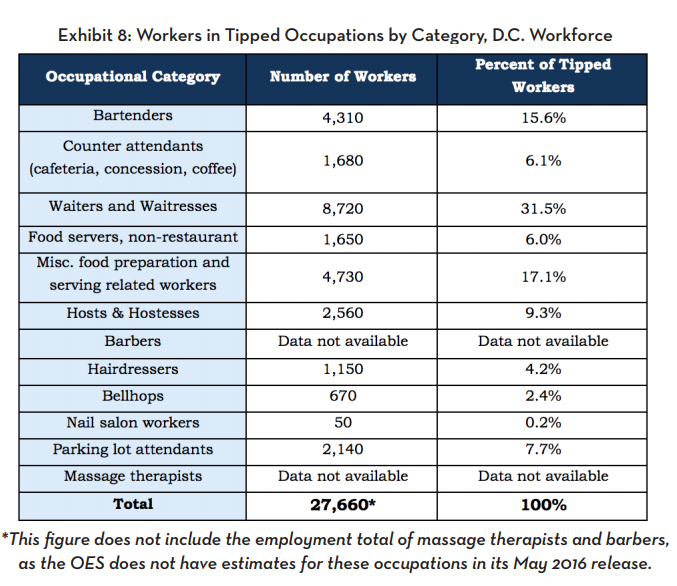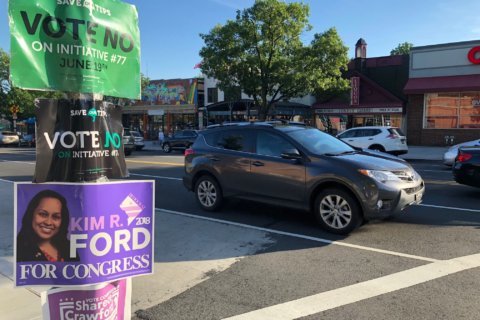WASHINGTON — Regardless of what party they’re registered with, D.C. voters will decide a contentious issue on the primary ballot next week: whether to raise the minimum wage for tipped workers.
Initiative 77 raises the minimum wage for tipped workers from $3.33 to the regular D.C. minimum wage by 2026. It also ties raises in the minimum wage to the Consumer Price Index starting in 2021.
The D.C. primary is June 19. Voters can only cast ballots for the party they’re registered with, but any registered voter can vote on Initiative 77.
In any industry, there’s a range to how much tipped workers make. Some bartenders make hundreds a day, while others, such as parking lot attendants and hair washers, may barely be getting by.
“My wife is going to law school at American University … so right now, [I’m] grinding it out, waiting tables,” said Tim McGrane, who said he regularly makes an extra $20 an hour in tips.
That bump from the $3.33 flat rate he makes is essential to his family’s livelihood, and McGrane thinks if diners know he’s making minimum wage, they won’t tip as generously.
“We won’t end up making the basic flat line $15 an hour. You’re going to get taxed on that so you’re going to be taking home less,” he said.
“Vote No on 77” signs are posted inside the restaurant where he works. Most restaurant owners oppose Initiative 77 and signed a public letter asking voters to reject the ballot measure through the “Save Our Tips” campaign.
‘So much anxiety’

“There is just so much anxiety associated with factors beyond your control,” said TJ, who is in favor of Initiative 77 but wanted her name changed for this story because her employer is against it.
She said a server’s schedule, the weather or even their race or gender could mean the difference as to whether they make the tips necessary to survive financially.
“You’re not hearing from many people on the pro side because they are not organized. These are people who are extremely vulnerable and marginalized,” and she said English may not be their first language, so they could not understand their rights.
Roughly 30,0000 workers’ livelihoods in the District depend on tips, and according to Department of Employment Services data, a majority of them work in restaurants.
“Overwhelmingly those workers are more likely to live in poverty. They are more likely to be women. And more specifically, they’re more likely to be women of color,” said Brittany Alston, with the D.C. Fiscal Policy Institute.
Her organization is not formally affiliated with the One Fair Wage campaign, but she said it found evidence to support a minimum wage for tipped employees has worked in other cities.
“This is not an elimination of tips. We’ve looked at other jurisdictions. People have continued to tip. We just want tips to be what [their] primary function was, and that’s a token of gratuity but not a subsidy for workers’ wages,” Alston said.
D.C. requires employers to pay tipped workers at least $12.50 an hour if they do not make that much in gratuities; however, 2018 data from the D.C. Department of Employment Services cites a living wage in the District as $14.20 an hour.
Restaurant manager Roberto Mantari says raising the minimum wage would mean less take-home pay for servers, and that the extra cost will trickle down to customers.
“For us, we have to change the way we do things. You know, we might have a surcharge. We might raise our price because we have to be able to get the $15 for each server,” which could mean the loss of regular customers and eventually staff, he said.
CORRECTION: A previous version of this story stated Initiative 77 would raise the minimum wage to $15 an hour by 2020. The minimum wage was raised by a law signed in June 2016.








